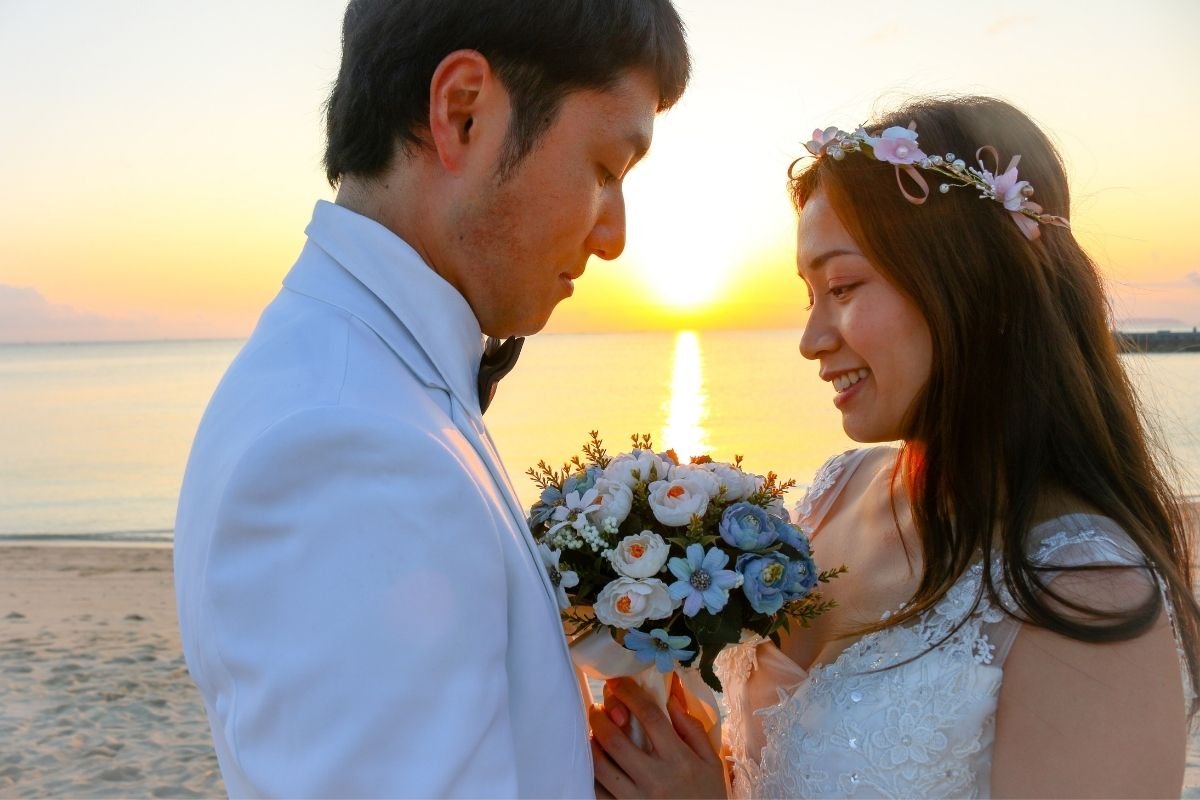As of July 2, 2025, gay marriage is not allowed by law in Japan. Even though support in the public is growing and there are cases challenging the ban, Japan is the only country in the G7 that has not made same-sex marriage or partnerships legal nationwide. This means that same-sex couples in Japan do not have the same social and legal protections as different-sex married couples.

The law is complicated and keeps changing, with court decisions pointing out problems with the ban, but the national government has not yet passed a law to allow same-sex marriage. Some cities and prefectures give out partnership certificates, but these do not provide all the rights and benefits of legal marriage.
What Does Japanese Law Say About Same-Sex Marriage?
Japanese law, mainly Article 24 of the Constitution, says that marriage is based on the agreement of both sexes, which has been taken to mean only a man and a woman can marry. The Civil Code and Family Register Act follow this view by not recognizing same-sex unions. Because of this, there are big differences in rights for same-sex and different-sex couples.
It is also worth saying that same-sex relationships are legal in Japan and have been legal since 1881. The debate is only about legal status and the related rights for same-sex couples, not about the relationships themselves. This gap in recognition creates everyday problems for LGBTQ+ people trying to get equal treatment.
How the Constitution Is Interpreted on Marriage
Article 24 is central to this debate. It says: “Marriage shall be based only on the mutual consent of both sexes, and it shall be maintained through mutual cooperation with the equal rights of husband and wife as a basis. Laws shall be made from the standpoint of individual dignity and essential equality.” This was meant to protect individual choice in marriage and create equality between men and women, not just keep arranged marriages in place.
Today, some politicians and legal experts say this article excludes same-sex marriages because of the “both sexes” phrase. Others say that the spirit of equality in Article 24 (and other parts of the Constitution) should also apply to same-sex couples, and that lawmakers at the time didn’t think about same-sex marriage simply because it was unheard of, not because they meant to exclude it. This disagreement is behind many of the lawsuits in Japan right now.
Legal Alternatives to Gay Marriage in Japan
With no marriage equality at the national level, many local governments have started partnership certificate systems to give some legal recognition to same-sex couples. These systems offer limited benefits and are not the same as marriage, but they show how local authorities are trying to help where national law does not.
What Is the Partnership Certification System?
The partnership certificate (also called a “partnership oath”) is a local program allowing same-sex couples to register their relationships. As of April 1, 2025, there are 459 local governments and 31 prefectures with these systems. Shibuya in Tokyo started this first in 2015, and since then the number has grown quickly. Couples usually must prove they live in the area, are over 20, and are not already married or partnered to someone else.
These certificates are an important recognition, showing that same-sex partnerships exist and matter. But since these programs are only at the local level, not all businesses or government services have to honor them. Even with this weakness, the spread of these certificates shows that more places are willing to address some needs of same-sex couples.

Rights and Limits of Local Partnership Certificates
Partnership certificates give limited benefits including help with renting property, visiting a partner in the hospital, or agreeing to surgery. In some places, a “familyship” system extends to children and in-laws, letting partners make health decisions for their kids or pick them up from school. But these certificates are not equal to marriage.
- No automatic inheritance rights
- No spousal visa for non-Japanese partners
- No guaranteed full parental rights
- No right, in every case, to make funeral arrangements
- Landlords and hospitals do not have to accept the certificate by law
Because of these limits, many same-sex couples are left without protection in important parts of life, even if they have a partnership certificate.
Legal and Everyday Effects for Same-Sex Couples
Since there is no national law for same-sex marriage, LGBTQ+ couples in Japan often face legal uncertainty. Local partnership systems help with some issues but leave out many important rights, making things hard when it comes to family, property, and healthcare decisions.
Cohabitation, Parenting, and Adoption
Same-sex couples can live together without breaking the law, but without marriage, they do not get the same legal benefits. Problems can come up with owning or renting property together. For raising children, the situation is even more difficult-local systems may let a non-birth parent pick a child up from school or decide health issues, but nationwide, the non-birth parent has no automatic legal rights.
Joint adoption by same-sex couples is unclear under national law. Some couples have used adult adoption as a workaround, but this is not the same as legal parents for the child. This leaves children raised by same-sex parents legally vulnerable compared to children of married couples.
Impact on the Koseki (Family Registry)
The koseki is Japan’s family registry, used to track family relationships and identity. Being on the same koseki is needed for legal next-of-kin rights, like visiting a partner in the hospital or inheriting property. Because same-sex marriage is not allowed, same-sex partners cannot be listed as family on each other’s koseki.
This means that if one partner becomes sick or dies, the other may not have the legal power to make medical decisions or arrange the funeral, and may even be excluded from inheritance. This creates real problems for same-sex couples that different-sex married couples do not face.

Access to Health Care and Inheritance
Without marriage, same-sex partners often have trouble seeing each other in the hospital or making decisions during emergencies. Local partnership certificates may help, but not all hospitals recognize them, so couples sometimes face uncertainty or are turned away.
Inheritance is another big problem. Married couples inherit automatically unless there is a will, but same-sex couples do not. If one partner dies without a will, the surviving partner may get nothing. To get around this, couples can make wills, but it is complicated and does not provide the same protection as marriage. There have been a few changes, such as a recent government announcement to let certain domestic violence or child welfare rules apply to same-sex couples, but these changes do not fix the larger issue.
Recent Court Cases Involving Same-Sex Marriage
In recent years, court cases have challenged the same-sex marriage ban, bringing more attention and pressure on lawmakers. These cases show that the legal system is moving, bit by bit, toward recognizing that the current situation may not follow Japan’s own Constitution.
Main District and Appellate Court Decisions
Since 2019, several lawsuits known as “Freedom to Marry for All” have been filed by same-sex couples around Japan. The Sapporo District Court’s ruling on March 17, 2021 was a turning point, saying the ban violated Article 14 (equality), although claims for damages were denied. In June 2022, Osaka District Court went the other way, supporting the ban and saying marriage was to protect raising children by a man and a woman.
After that, rulings in Tokyo (November 2022) and Nagoya (May 30, 2023) said the ban was in a “state of unconstitutionality,” with Nagoya also saying the ban violated Article 24’s equality principle for the first time. Fukuoka’s ruling in June 2023 agreed.
High courts have spoken even more firmly: Sapporo High Court (March 14, 2024) and Tokyo High Court (October 30, 2024) both said the ban is against Articles 14 and 24. Fukuoka High Court (December 13, 2024) added Article 13 on happiness. Nagoya and Osaka high courts made similar judgments in March 2025. These cases show that many judges see the ban as unconstitutional.
Supreme Court Cases and Pending Decisions
Japan’s Supreme Court has not yet made a final statement on same-sex marriage as of July 2, 2025, though it has made important decisions on related issues. In March 2021, it ruled that same-sex partners can sue over infidelity, just as opposite-sex common-law spouses can.
On March 26, 2024, it decided that same-sex partners can get crime victims’ benefits, treating them as family. This is a sign that more legal rights are being recognized, even if not full marriage rights. The key lawsuits challenging the marriage ban are expected to reach the Supreme Court soon, and many people believe the next decision will be key for the future of marriage equality in Japan.
How Lawsuits Affect the Political Debate
The growing number of court cases and their strong statements about the Constitution have increased pressure on lawmakers. These rulings do not automatically change laws, but they make it harder for politicians to ignore the issue. Groups such as Amnesty International argue that the government needs to act, pointing to the court rulings as proof that the current ban is unfair.
So far, the government has been careful, with leaders often saying they want to wait for a clear Supreme Court judgment rather than moving ahead with new laws. However, repeated court findings against the ban are keeping the subject active in politics and giving advocacy groups more reason to push for change.
Politics and Society: What Influences Same-Sex Marriage Laws in Japan?
Whether Japan will allow same-sex marriage soon depends not just on the courts but also on political parties and what the public thinks. These different parts of society combine to make change slow, even though there are signs of growing support.
Main Political Parties’ Positions
Some parties back same-sex marriage, including the Constitutional Democratic Party, Japanese Communist Party, Social Democratic Party, Reiwa Shinsengumi, Komeito, and the Japan Innovation Party. All Reiwa Shinsengumi, Communist, and Social Democratic members of Parliament support it, and most members in other parties listed above do too.
| Political Party | Supports Same-Sex Marriage |
|---|---|
| Constitutional Democratic Party | Yes |
| Japanese Communist Party | Yes |
| Social Democratic Party | Yes |
| Reiwa Shinsengumi | Yes |
| Komeito | Majority Support |
| Japan Innovation Party | Majority Support |
| Liberal Democratic Party | Mostly Opposed/Undecided |
But the Liberal Democratic Party (LDP), in power for decades, has held back progress. While a few LDP politicians are in favor, many are against or undecided. Prime Minister Fumio Kishida has said this is a big family issue and should be considered carefully, making law changes slow.
Recent Laws and Proposals
Bills to legalize same-sex marriage have been introduced into parliament (the Diet) in 2019 and 2023, aiming to update the law, but none have moved forward very far. In June 2023, a law was passed to “promote understanding” of LGBTQ+ people, but rights groups criticized it for being weak and not giving real legal protection. Amnesty International has said this law is not enough and that more concrete steps need to be taken.
Advocacy and Public Campaigns
Activists and human rights groups play a big part in this movement. Organizations like Marriage for All Japan gather signatures, speak with lawmakers, and highlight the real difficulties faced by same-sex couples, for example during the COVID-19 pandemic with hospital visits and inheritance trouble.
Big international groups, including Amnesty International, keep asking Japan to act quickly to bring its laws in line with other countries and human rights standards. These efforts, along with court wins, keep the issue visible and increase pressure for legal change.
What Does the Public Think About Same-Sex Marriage?
Public opinion has shifted quickly in Japan, with more people supporting same-sex marriage as time goes on. What used to be a small, mostly ignored issue has become a topic with wide support.
Recent Poll Results
| Poll/Source | Year | Support | Oppose |
|---|---|---|---|
| Kyodo News | Feb 2023 | 64% | 25% |
| The Asahi Shimbun | Feb 2023 | 72% | 18% |
| Kyodo News | Mar-Apr 2023 | 71% | 26% |
| Pew Research Center | Jun-Sep 2023 | 68% | 26% |
These polls show that a clear majority of Japanese people support same-sex marriage, and the support includes voters for the ruling LDP party too. Still, the government has been slow to act on this public support.
How Public Attitudes Have Changed
Opinions have shifted quickly. In 2014, a poll showed only about 42% were in favor and 52% were against. By 2015, a majority started to support same-sex marriage. Since then, each year, support has mostly grown, especially among young people and women. For example, in a 2023 poll, 84% of 18-34-year-olds supported it.
This steady rise shows that same-sex marriage is now widely accepted in society and is likely to become more favored over time. Many experts say it is unusual to see public opinion shift this fast on a social issue.

How Does Japan Compare to Other Countries?
Japan’s stand on same-sex marriage is different from many developed countries, and this difference stands out even more when compared to other G7 nations.
Status in Asia and Worldwide
Many countries now allow same-sex marriages or partnerships. Japan, as the only G7 country not to do so, lags behind its peers in offering legal rights to LGBTQ+ couples.
- Taiwan legalized same-sex marriage in 2019.
- Some Asian countries have partial recognition or no recognition at all.
With national partnership certificates but no marriage, Japan sits in the middle, offering some local acknowledgment but not full legal status like more and more other countries do.
International Calls and Recommendations
As the last G7 country without marriage equality, Japan faces ongoing calls from groups like Amnesty International to update its laws. Court rulings in Japan add strength to these calls, saying that the marriage ban goes against the Constitution. On the world stage, Japan’s laws are out of step with its fellow democracies, and international bodies are pressuring the government to catch up.
What’s Next for Same-Sex Marriage in Japan?
Even though change is slow, court actions, public support, and advocacy suggest that marriage equality in Japan is likely in the future.
Possible Legal and Social Developments
Repeated court rulings are building a strong case for change, especially at the Supreme Court level. If the Supreme Court rules that the ban is unconstitutional, lawmakers will be forced to act. Even without this, the increasing number of courts deciding against the ban makes it hard for politicians to avoid the issue.
Socially, more and more young and female voters support same-sex marriage, making future legal changes more likely. Also, the spread of partnership systems, now covering roughly 92% of the population, is helping normalize recognition of same-sex couples at the local level.
Main Factors That Could Shift the Law
- The Supreme Court’s next ruling on marriage equality lawsuits
- Change in leadership or attitude within the ruling LDP party
- Continued advocacy and high support in public opinion surveys
These factors together will shape how soon and how completely same-sex marriage becomes legal in Japan. As court and public pressure mounts, it is likely that politicians will have to respond, even if slowly.
- What Is a Maiko? - July 13, 2025
- What Does Domo Arigato Mean? - July 12, 2025
- What Does Naruto Mean? - July 12, 2025









